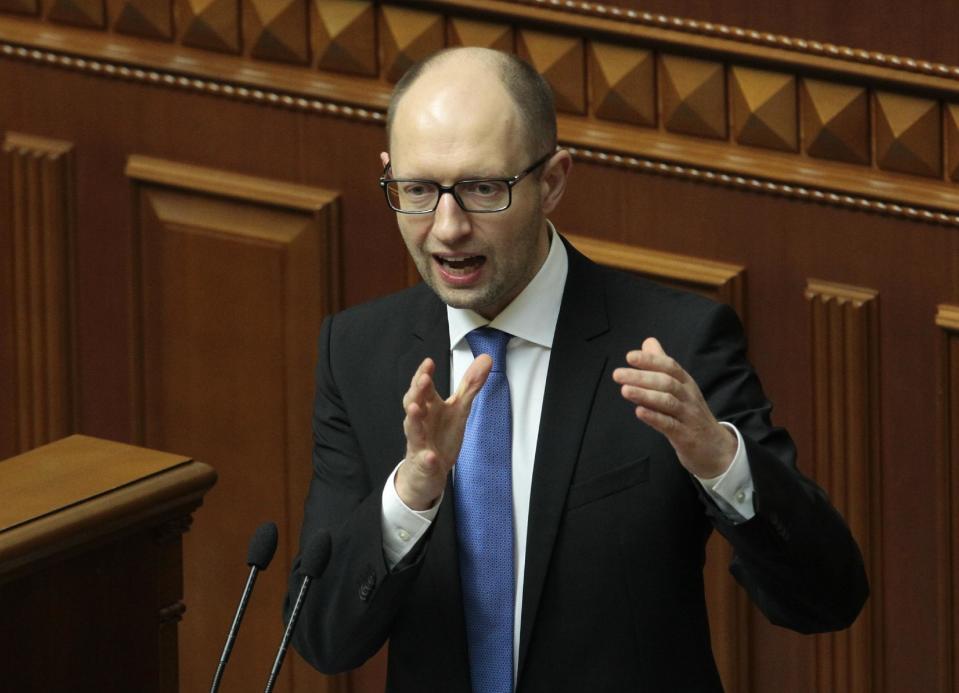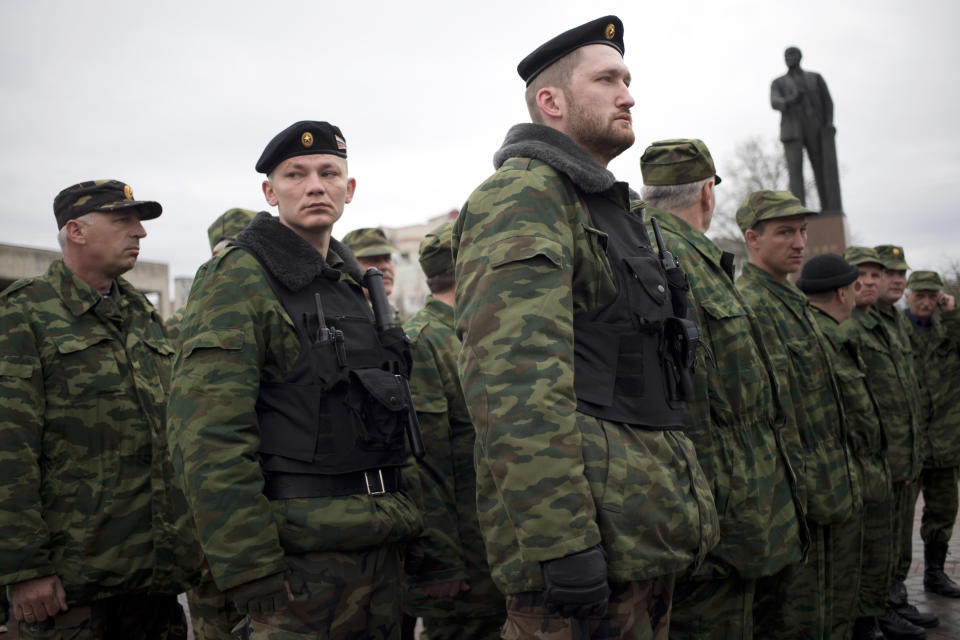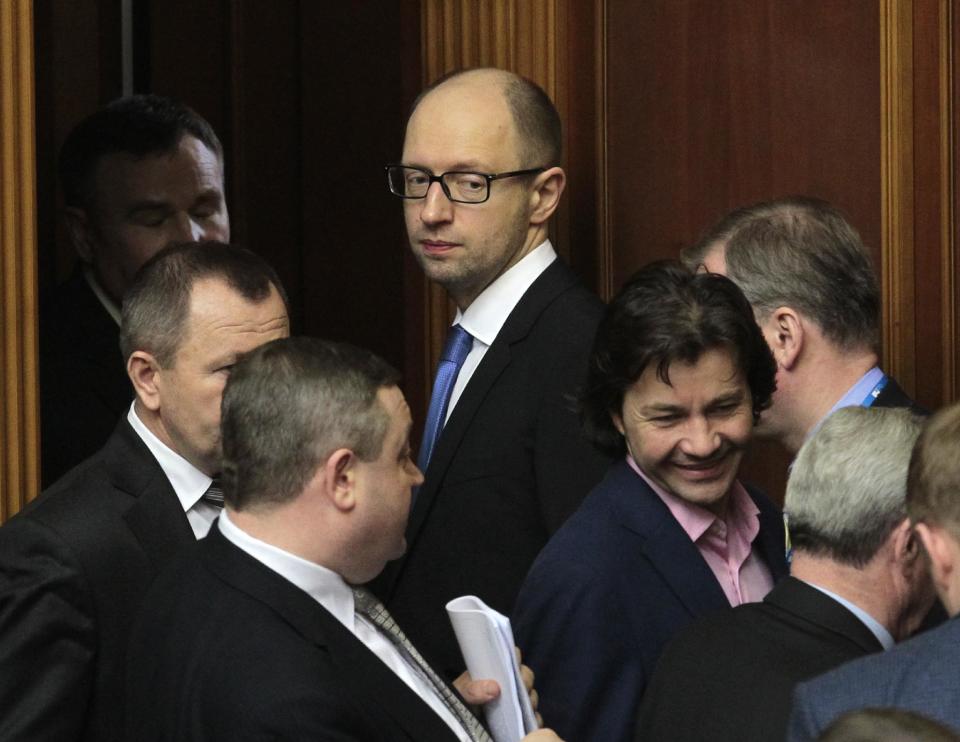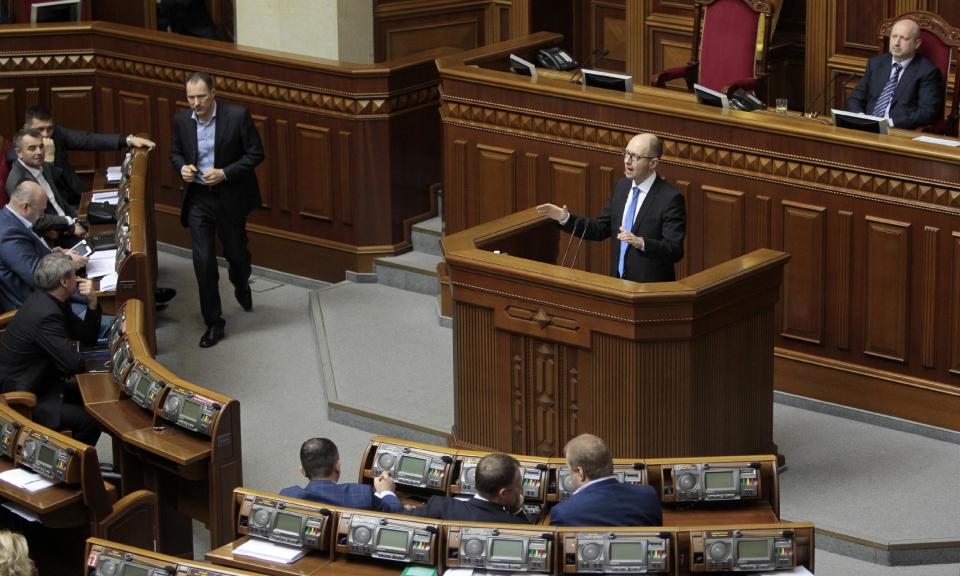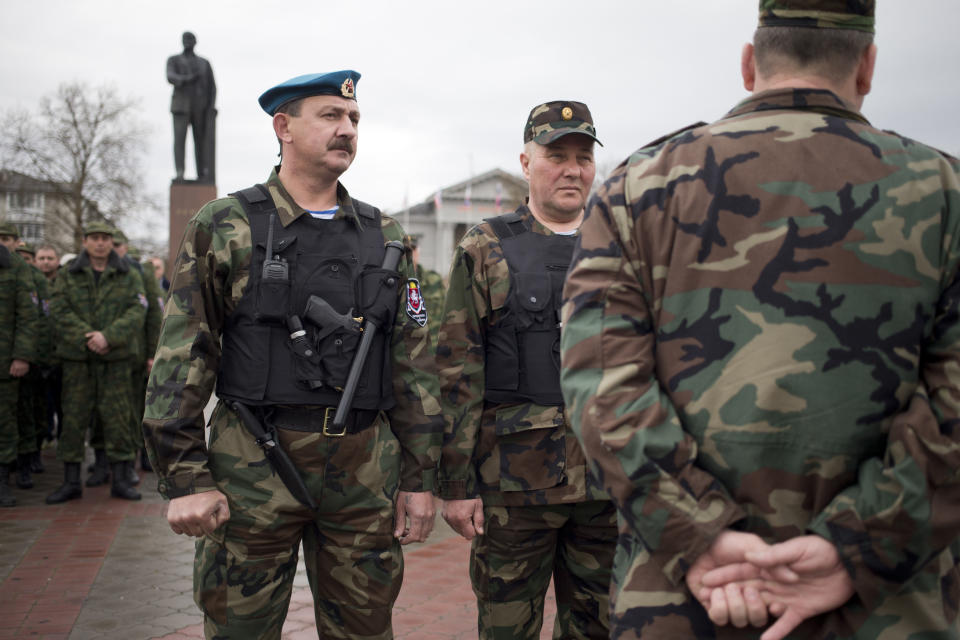West to help Ukraine with $18 billion bailout
KIEV, Ukraine (AP) — Western nations rushed to help Ukraine on Thursday, with the International Monetary Fund pledging up to $18 billion in loans, the U.N. condemning the vote that drove Crimea into Russian hands and the U.S. Congress considering even harsher sanctions against Russia.
Yet even with such intensive help to prop up Ukraine's teetering economy, the prime minister warned that all residents are going to feel pain from the necessary financial reforms ahead — and home energy prices are certain to rise quickly.
And if that wasn't enough, former Ukrainian Prime Minister Yulia Tymoshenko — one of the country's most polarizing figures — said she will run for president in the May 25 vote. The announcement is sure to usher in strong emotions in Ukraine's turbulent politics.
Russia, for its part, shrugged off the spotlight that was on Ukraine and the torrent of criticism directed at its annexation of Crimea. President Vladimir Putin's government announced it would set up its own payment system to rival Visa and MasterCard after the two companies pulled their services from some Russian banks in the wake of international sanctions.
Speaking in Rome, President Barack Obama called the swell of support a "concrete signal of how the world is united with Ukraine."
"The decision to go forward with an IMF program is going to require a lot of courage," Obama said. "It will require some tough decisions."
In a lengthy, passionate address to parliament in Kiev, Prime Minister Arseniy Yatsenyuk warned that Ukraine was "on the brink of economic and financial bankruptcy" and laid out the fixes needed to put the country back on track.
"The time has come to tell the truth, to do difficult and unpopular things," Yatsenyuk said, adding that Ukraine was short $25.8 billion — "equivalent to the entire state budget for this year."
The IMF loan, which is expected to range between $14 billion and $18 billion, hinges on structural reforms that Ukraine has pledged to undertake.
Ukraine's new government finds itself caught between the demands of international creditors and a restive population that has endured decades of economic stagnation, corruption and mismanagement. The reforms demanded by the IMF — which included raising taxes, freezing the minimum wage and hiking energy prices — will hit households hard and are likely to strain the interim government's tenuous hold on power.
Ukraine, a nation of 46 million people, is battling to install a semblance of normalcy since President Viktor Yanukovych was ousted in February after months of protests ignited by his decision to back away from closer relations with the EU and turn toward Russia. Over the last few weeks, an interim government has formed, Ukraine lost Crimea to Russia and further possible military incursions by Russia are feared.
"This is a kamikaze government that perfectly well understands that there is no other way to stabilize Ukraine," said Viktor Zamyatin, analyst with the Kiev-based Razumkov Center think tank. "The catastrophic state of Ukraine's economy has forced the government's hand."
But he said it could pay a steep price.
"It is hard to explain to the voter that the worsening of the economy has happened not because of the revolution, but because of Viktor Yanukovych's policies," he said.
The U.N. General Assembly overwhelmingly approved a resolution condemning the referendum that led to annexation of the Crimean Peninsula as illegal. The vote Thursday was 100 in favor, 11 opposed and 58 abstentions.
Tymoshenko, who was released from jail last month following the overthrow of her fierce rival Yanukovych, is variously admired as an icon of democracy or detested as a self-promoting manipulator with a shady past.
This will be the 53-year-old's second attempt to win the presidency. She narrowly lost to Yanukovych in 2010 and spent two years in jail on charges that many in the West considered politically tainted.
On Thursday, alluding to her time in jail, she declared she has earned the right to promise that she will combat corruption.
"I will be the candidate of Ukrainian unity," Tymoshenko said. "The west and center of Ukraine has always voted for me, but I was born in the east."
Ukraine is politically divided, with western regions favoring closer ties to Europe and the east looking toward Russia. But the dire state of its economy is an unavoidable issue: Ukraine's Finance Ministry has said it needs $35 billion over the next two years to avoid default.
The IMF said recent economic policies have drastically slowed Ukraine's growth and brought foreign currency reserves to a "critically low level."
"Ukraine's macroeconomic imbalances became unsustainable over the past year," the IMF said.
One immediate reform will be to let gas prices for households float up to become more in line with market prices. Ukraine for years has relied on discounted gas from Russia and then subsidized that further, so that residents are used to extremely low energy prices. Russia has abandoned the discounts and Ukraine's government cannot afford the extra subsidy anymore.
State energy company Naftogaz announced this week that household gas prices would rise 50 percent beginning May 1 to make utility costs economically viable for the state by 2018. Yatsenyuk said the number of households getting state energy subsidies would rise from 1.4 million to four million.
He also announced layoffs for 10 percent of Ukraine's civil servants, or 24,000 workers.
Other donors, including the European Union and Japan, have already pledged further aid to Ukraine, conditional on the IMF bailout and reform package. The total amount of international assistance will be about $27 billion over the next two years.
Separately, the 28-nation EU has prepared a wider aid package including loans and grants for Ukraine expected to total more than $10 billion over the coming years.
Ukraine has historically had a fraught relationship with the IMF and failed to keep to the terms of earlier bailouts in 2008 and 2010. Such recalcitrance is seen as less probable this time around, although doubts persist.
"Given the volatile political situation, the prospect of a change in president following elections on May 25, and Ukraine's track record with the IMF, there will still be many doubts about whether politicians will be able or willing to push through more substantial changes," wrote William Jackson, an analyst at Capital Economics research company.
___
Nataliya Vasilyeva in Moscow and Juergen Baetz in Brussels contributed to this report.

